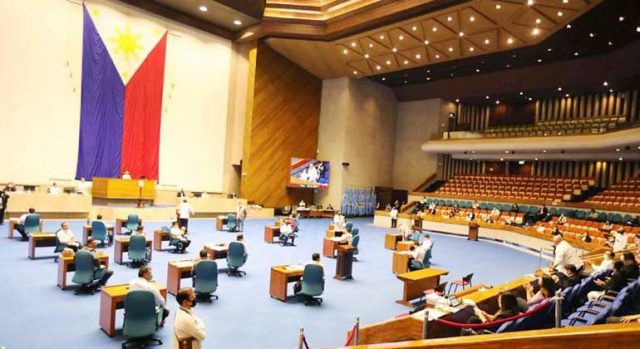Filipinos have grown accustomed to celebrating festivities. However, things changed when the pandemic set in. Towards the close of the first half, it seems many celebrations have been called off due to safety concerns and travel restrictions. Without the pandemic, many would have been busy preparing for the Flores de Mayo and the Santacruzan.
Despite the low-key nature of celebrations this year, there is reason for businesses to hope this month. Notwithstanding the pandemic, the government remains determined to attract more foreign investment through key legislative like the Corporate Recovery and Tax Incentives for Enterprises (CREATE) Act. The new law, which became effective on April 11, 2021, is expected to help bolster economic growth following the pandemic.
Recently, the much-awaited draft of the Implementing Rules and Regulations (IRR) on Tax Incentives was released by the Department of Finance. It contains, among others, details on new tax incentives awaiting investors, as well as the expanded functions of the Fiscal Incentives Review Board (FIRB) as overseer of the grant of investment incentives and the delegated authority given to Investment Promotion Agencies (IPAs).
AVAILABLE TAX INCENTIVES
The CREATE Act provides for the following incentives to registered business enterprises:
1. Income Tax Holiday (ITH) for four to seven years
2. Special Corporate Income Tax (SCIT) equivalent to a tax rate of five percent (5%) based on the gross income earned (GIE) for ten years, in lieu of all national and local taxes
3. Enhanced Deductions for five or 10 years
4. Customs duty exemptions on imports of capital equipment, raw materials, spare parts, and accessories
5. Value-Added Tax zero rating and exemption
For an export enterprise with the option to avail of either the SCIT or enhanced deductions, the draft IRR states that the option shall be exercised by the business enterprise at the time of the application for registration of the project. Such an option is irrevocable.
CONFLICTING ISSUES ON THE EXCLUSIVE LIST OF DIRECT COSTS IN THE IRR
Under the draft IRR, the enumeration of direct costs that are deductible from the GIE shall be exclusive. However, the Supreme Court, in its decision in the case of Commissioner of Internal Revenue vs. East Asia Utilities Corp. (G.R. No. 225266, Nov. 16, 2020), ruled that the list of direct costs that are deductible from the gross income of enterprises registered under the Philippine Economic Zone Authority or PEZA is not exclusive. The decision is consistent with Section 24 of the PEZA Law which states that costs and expenses directly related to the enterprise’s PEZA-registered activities, which are not administrative, marketing, selling and/or operating expenses or incidental losses, are allowed as deduction from gross income. I remain hopeful that the final IRR clarifies this part to properly guide registered business enterprises (RBEs).
ADDITIONAL TAX INCENTIVES
Projects or activities located in areas recovering from armed conflict or a major disaster and projects or activities relocated from the NCR are entitled to an additional two years of ITH and additional three years of ITH to commence at the completion of the relocation of operations, respectively, subject to certain conditions as specified in the Act.
PENDING ISSUANCE OF THE SIPP AND ITS VALIDITY
To be eligible for incentives, the activity must be listed in the Strategic Investment Priority Plan (SIPP). The validity of the SIPP is three years from its issuance. The 2020 Investment Priorities Plan under Memorandum Order No. 50, signed by the President on Nov. 18, 2020, shall be applied until the publication of the SIPP under the CREATE Act.
SUFFICIENCY OF THE CERTIFICATE OF REGISTRATION (COR) AND THE CERTIFICATE OF ENTITLEMENT TO TAX INCENTIVES (CETI)
During the public consultation on the draft IRR on tax incentives, it was also made clear by the DoF that the COR and CETI are sufficient basis for the grant of tax incentives. This means that a prior ruling from the BIR will not be required before an RBE may qualify for incentives.
TRANSITORY PERIOD
Projects that were registered prior to the effectivity of the CREATE Act may be registered and entitled to incentives granted under the CREATE Law, subject to the criteria and conditions set forth in the SIPP. Here, the RBE shall surrender its COR or CETI, as applicable.
RBEs whose projects were granted only an ITH prior to the effectivity of the CREATE Law will be allowed to continue with such availment for the remainder of the ITH, as specified in the terms and conditions of registration. RBEs whose projects were granted an ITH prior to the effectivity of the CREATE Act and those that are entitled to the 5% tax on GIE incentives after the ITH, shall be allowed to use the ITH for the period specified in the terms and conditions of their registration. They may then avail of the 5% tax on GIE for 10 years. On the other hand, RBEs currently availing of the 5% tax on GIE granted prior to the enactment of the CREATE Law shall be allowed to continue availing of the tax incentive at the rate of 5% for 10 years.
The period of availment of 10 years is reckoned from the effectivity of the CREATE Act. I am also hoping that the final IRR will include sample computations and scenarios for the transitions.
With the recent developments in our tax system, I can see how the initiatives of the government might foster a more equitable tax incentive system, thereby promoting inclusive growth and the generation of jobs and opportunities. Much depends on ensuring access to and ease of the granting of tax incentives, especially for applicants in less-developed areas. For now, we hope that the government releases the final IRR soon. As various public consultations have conducted, I also hope that the final IRR will be clear and can sufficiently address all questions raised by the public. After all, this IRR will bring life to the provisions of the CREATE Act, which can provide hope for everyone.
Let’s Talk Tax is a weekly newspaper column of P&A Grant Thornton that aims to keep the public informed of various developments in taxation. This article is not intended to be a substitute for competent professional advice.
Ma. Jessica A. Guevarra is a senior associate of the Tax Advisory & Compliance division of P&A Grant Thornton, the Philippine member firm of Grant Thornton International Ltd.
pagrantthornton@ph.gt.com












